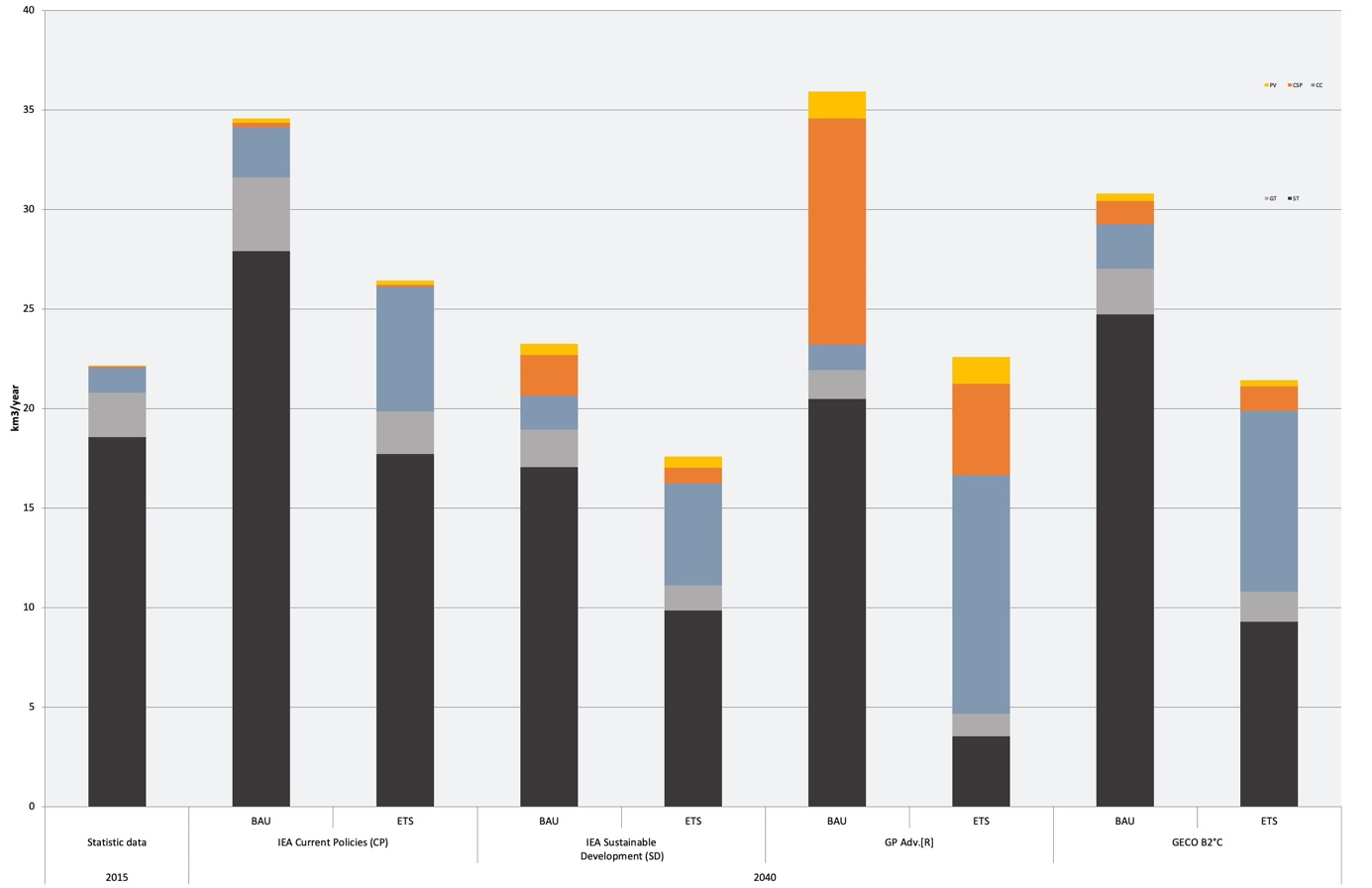Method for determining the future direct water demand of power generation on a global and regional level. The approach enables conclusions about the impact that different decarbonisation strategies will have on future water demand.
The generation of electricity requires water. As global demand for electricity is expected to increase significantly in the coming decades, the demand for water in the power sector is also expected to increase. However, because of the global energy transition, the future structure of the power supply – and with it the future water demand for power generation – is subject to a high degree of uncertainty, given that the amount of water required for electricity generation varies greatly depending on both the generation technology and the cooling system. The developed method enables the quantification of the impact of decarbonisation strategies on direct water demand for electricity generation at global and regional levels.
For this purpose, water demand scenarios for the power sector are developed based on selected global energy scenario studies and the impacts up to 2040 are systematically analysed. The results show that different decarbonisation strategies can lead to a significant variation in water demand. In this context, a reduction in greenhouse gas (GHG) emissions does not necessarily lead to a reduction in water demand. Accordingly, the results underline the need to consider not only GHG emission reductions, but also aspects such as water demand in energy system planning in order to make the energy transition sustainable.



